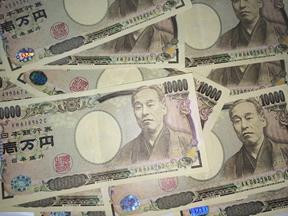As the Japanese yen continues to languish at multi-decade lows against the U.S. dollar, Japanese authorities are signaling their readiness to intervene in the currency market to address excessive moves. Prime Minister Fumio Kishida emphasized the government's resolve to step in if the yen's fall is deemed overdone, stating that they will not rule out any options in dealing with the situation.
"It's important for currency rates to move stably reflecting economic fundamentals," Kishida said during a news conference on Thursday. "We will monitor currency moves with a high sense of urgency, and respond appropriately without ruling out any options to deal with excessive currency moves."
Kishida's remarks echoed those of Japan's top currency diplomat, Masato Kanda, who on Wednesday, as the yen hit a 34-year low against the dollar, reportedly said that the yen's moves were being watched closely and urgently. The yen's sharp declines come despite the Bank of Japan's (BOJ) decision last week to end eight years of negative interest rates, as traders focused more on the central bank's dovish message suggesting that another rate hike will be some time off.
According to a summary of opinions from last week's BOJ meeting, released on Thursday, many policymakers saw the need to go slow in phasing out ultra-loose monetary policy upon ending negative rates. This dovish stance contrasts with the U.S. Federal Reserve's plans for multiple rate cuts before the end of the year, further widening the gap between Japanese and U.S. interest rates.
"With the yen weakening to a fresh 34-year low against the dollar, the Ministry of Finance signalled that an intervention in the foreign exchange markets is imminent," said Marcel Thieliant, head of Asia-Pacific at Capital Economics. "However, the yen will certainly not get much support from Japan's monetary policymakers as inflation is more likely to undershoot than to overshoot the Bank of Japan's forecasts."
Steven Englander, head of Global G10 FX research and North America macro strategy at Standard Chartered Bank, told CNBC that Japan is "very, very close" to intervening in the yen. "I think we're actually very, very close to them [Japanese authorities] jumping in ... they've already discussed the political consequences and nobody's sitting there asking for a weaker yen," Englander said.
Englander noted that potential intervention in the yen would be aimed at buying time for Japanese authorities until the U.S. Federal Reserve starts cutting interest rates or until the BOJ hikes its rates a little more. He also pointed out that when Japanese authorities last intervened in the yen in 2022, it "worked out pretty well," despite initial investor skepticism about the effectiveness of such currency intervention.
While Japanese policymakers have historically favored a weak yen, as it helps boost profits at the country's large manufacturers, the yen's sharp declines have recently added to headaches for Tokyo by inflating the cost of raw material imports, hurting consumption and retail profits.
Data due out on Friday is likely to show annual core inflation in Japan's capital, which is considered a leading indicator of nationwide trends, slowed to 2.4% in March after a 2.5% gain in February, according to a Reuters poll. This potential undershoot of the BOJ's forecasts may further complicate the central bank's efforts to normalize monetary policy and support the yen.
As the yen continues to trade around 151.47 against the U.S. dollar, market participants remain on high alert for any signs of intervention from Japanese authorities. The government's repeated verbal warnings and the BOJ's dovish stance have set the stage for a potential showdown in the currency market, with investors closely monitoring developments in the coming days and weeks.






